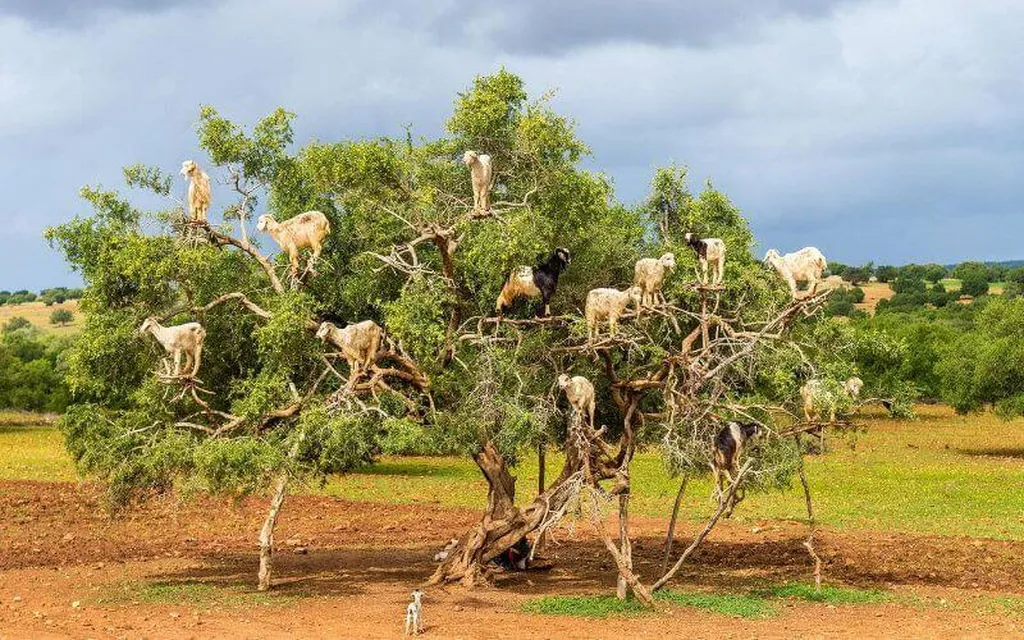In the sun-scorched landscapes where argan trees (Argania spinosa) thrive, a tiny, often overlooked ally is making a big difference. Researchers have discovered that a specific type of fungus, Rhizophagus irregularis, can significantly enhance the drought resistance of argan trees, with varying degrees of success depending on the tree’s genetic background. This finding, published in the journal Frontiers in Plant Science (translated to English as “Frontiers in Plant Science”), could have profound implications for the agricultural and energy sectors, particularly in regions prone to water scarcity.
The study, led by Matike Ganoudi of the Biotechnology Research Unit at the Center of Agricultural Research of Rabat, part of the National Institute of Agricultural Research in Morocco, explored how three different accessions of argan trees—Tidzi, Mejji, and City Hanchan—responded to colonization by the arbuscular mycorrhizal fungus (AMF) Rhizophagus irregularis under both well-watered and water-stressed conditions.
“Our research demonstrates that mycorrhization benefits all three accessions under stress conditions, but the degree of benefit varies,” Ganoudi explained. “This variability is crucial for understanding how to optimize plant-fungus partnerships for improved crop resilience.”
Under well-watered conditions, the colonized plants across all accessions exhibited higher biomass, root length, chlorophyll content, stomatal conductance, and root potassium (K) concentration. However, the story under water-stressed conditions became more nuanced. The Mejji accession showed significantly higher biomass, shoot K concentration, chlorophyll content, stomatal conductance, and reduced oxidative stress. Tidzi also performed well, with higher biomass, root P and K concentration, chlorophyll content, and lower oxidative stress. City Hanchan, while still benefiting from the fungus, showed higher levels of hydrogen peroxide (H2O2), indicating more oxidative stress.
This research highlights the potential for targeted use of AMF to improve crop resilience in water-limited environments. For the energy sector, this could translate to more sustainable and reliable sources of biofuel feedstocks, as argan oil is increasingly being explored for its potential in biodiesel production. By enhancing the drought resistance of argan trees, farmers and energy producers could secure more consistent yields, even in the face of climate change and water scarcity.
“The variability in response among accessions suggests that breeders and farmers might need to tailor their approaches based on local conditions and specific tree genetics,” Ganoudi noted. “This could lead to more efficient and sustainable agricultural practices.”
As the world grapples with the challenges of climate change and resource depletion, such innovative research offers a glimmer of hope. By harnessing the power of symbiotic relationships between plants and fungi, we can pave the way for more resilient and productive agricultural systems. The findings from Ganoudi’s team not only advance our scientific understanding but also open new avenues for practical applications in the field.
In the quest for sustainable energy solutions, every drop of water saved and every tree that thrives against the odds brings us one step closer to a more secure and sustainable future.

